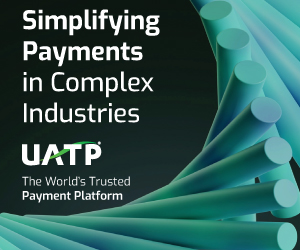Companies use a mix of direct control and support from outside parties to create managed travel programs tailored to their needs. The October Business Travel Executive Town Hall conducted via LinkedIn Audio featured a conversation with David Weaver, manager of global travel at privately held global engineering firm Bechtel Corporation, and Cindy Heston, director of travel and events at Elevance Health, a publicly traded health insurance firm. These two experienced buyers discussed what to farm out and what to handle with internal resources.
Weaver told the Town Hall audience that early in his career, he relied on the supply chain to educate him and structure the program. “But as you get more experience, learn more, get feedback from your own internal customers – employees, management, C-level – on the things that they like or don’t like, you begin to understand a lot of the flexibility that you actually do have in building your own program, whether that be a selection of an online booking tool, selection of a content provider or selection of a TMC,” he said. “As you get better at managing your program, you realize the ‘out of the box’ doesn’t fit your program anymore. You get into a great place where it’s about not just doing the basics really well, but optimizing everything you do.”
Elevance Health, with over 100,000 employees, created a program that relies on both an insourced model and outsourcing. It’s accredited with the Airlines Reporting Corp. as a Corporate Travel Department. Some companies with CTDs hire agents and keep much of the operation in-house. However, Elevance also has a global travel management company that provides service. “They are the experts; they have a global footprint and years of experience,” Heston said. “Our objective was always to outsource. We did not ever intend to start up our own agency and hire our own employees to manage that side of it.”
Online Booking Tool
The online booking tool configuration is important because it dictates the choices travelers see and how they see them. Obtaining support, troubleshooting and understanding new features are also key aspects of the OBT apparatus. Companies can contract directly with OBT providers or access the technology through a TMC’s arrangement, sometimes under a reseller agreement. Each option has its own set of pros and cons.
Bechtel went the reseller route. For Weaver, an important factor was back-end servicing, where the “heavy lifting” normally occurs, but not always by the OBT provider. “We want a tool that’s user-friendly and people want to use, and we want an agency that can support it,” he said. “If I contract with an OBT, I’m still going to have to find a TMC partner for it.”
Elevance went the other way, opting for its own OBT contract. It negotiates the terms and conditions; directly decides how to incorporate policies, preferred supplier messaging and traveler communications, stays informed of new enhancements; and influences the development roadmap.
Heston said she always preferred this model. Things can get done faster, and there are no “competing objectives” between Elevance and its TMC regarding preferred supplier placement and promotion. “There isn’t any gray,” she said. “You have a contract with us. You work for us.”
Traveler Profiles
Some buyers want traveler profile systems independent of their TMC. This provides the flexibility to use profiles whenever and however necessary, including moving them to a new agency after a switch. Elevance uses its OBT’s traveler profiles, which feed an HR ERP system and agency systems and get pulled into the company’s business intelligence, creating an internally hosted backup.
Currently also using its OBT for master profiles, Bechtel’s traveler profiles are a “work in progress,” according to Weaver, partly because OBT profiles are separated by instance or country of deployment, necessitating manual processes. If profiles instead were to emanate from Bechtel’s HR system, “when employees change location, that profile can move with them.”
Price Assurance
Also known as reshopping tools, these systems find cheaper airfares and/or hotel rates after the initial booking. They can be procured directly from third parties or used via a TMC’s relationships.
Beyond any immediate cost savings realized by switching to a lower-priced option, assurance systems give buyers data and control. The data can help buyers understand the reasons for travelers not booking preferred supplier rates. For small companies, or large ones with small travel teams like Bechtel’s, Weaver said, price assurance is “really low-hanging fruit” that is easy to manage.
Heston likes the price benchmarks that come from price assurance, including average hotel rates in a market and what Elevance travelers pay. “Assuming that average rate is commissionable because it’s a market price, we automatically say [to preferred hotels] that our rates need to be a minimum of 10 percent under that market rate,” she said.
Rate reshopping gives travelers confidence that their company is looking to save them money, Heston said, which helps keep employees in the program. “If you don’t have control of that transaction,” she said, “it is difficult to tell the traveler you found a better rate.”
Rates and Fares
Generally, the larger the company, the more it can directly negotiate prices with airlines, hotels and other providers. According to Heston, Elevance secures more favorable airfare discounts and car rental rates than its TMC, but hotel rates are mixed. The company directly negotiates with upwards of 200 properties and uses consortia rates from its agency elsewhere.
Smaller companies likely lean more on their TMCs to provide preferential pricing, but Weaver encouraged buyers in that situation to make an attempt, at least in markets and/or on city pairs where they have sufficient volume. “It’s not just about getting a rate and getting the savings,” he said. “Suppliers look at whose names are on that rate to provide a level of service. There’s a differentiator there.”
Data and Reporting
Data underpins everything. Heston and Weaver noted the value of TMC booking data for examining trends and volumes with preferred suppliers over time and for forecasting, but they favor internal expense data for understanding a trip’s total budget – including ancillary purchases – and accurately reporting to stakeholders.
Expense data more readily conveys how far in advance a ticket was purchased, whether the selected class of service was appropriate, and whether the traveler used the designated Bechtel form of payment. With that data in hand, Weaver works with HR, workforce services and corporate security to deliver appropriate messages around the company. Dashboards give business units a view into all that without ticket reissues and other itinerary changes that bring “mystery” and “murkiness” to the data.
“I understand there are apples and oranges, and that’s why I have them separate,” Weaver said. “If I were to put oranges in there – that would be the travel data – we would never get through the line of questions or exceptions to try to explain the variances to that data that we don’t have on the expense side. I can send that data up the chain all day, and there’s no debate about the validity of the data. I’ve never had to explain expense data to a CFO. But travel data? Yeah.”
The Elevance business intelligence tool pulls together event, expense and agency data. “Having the ability to own and share our data gives us a lot more flexibility to go into the marketplace and partner with different new innovators,” Heston said. “I don’t necessarily have to go and ask permission from our travel agency. I hold our destiny within our own ecosystem.”
It’s part of the buyer’s “responsibility,” Heston said, to kick the tires of new entrants and help create a more competitive marketplace.











